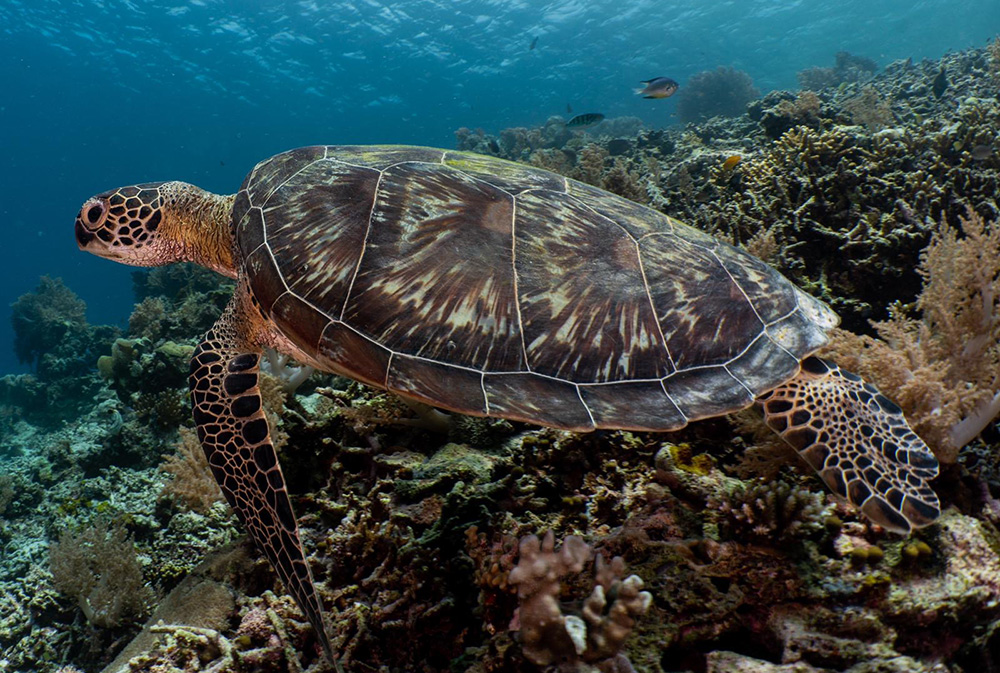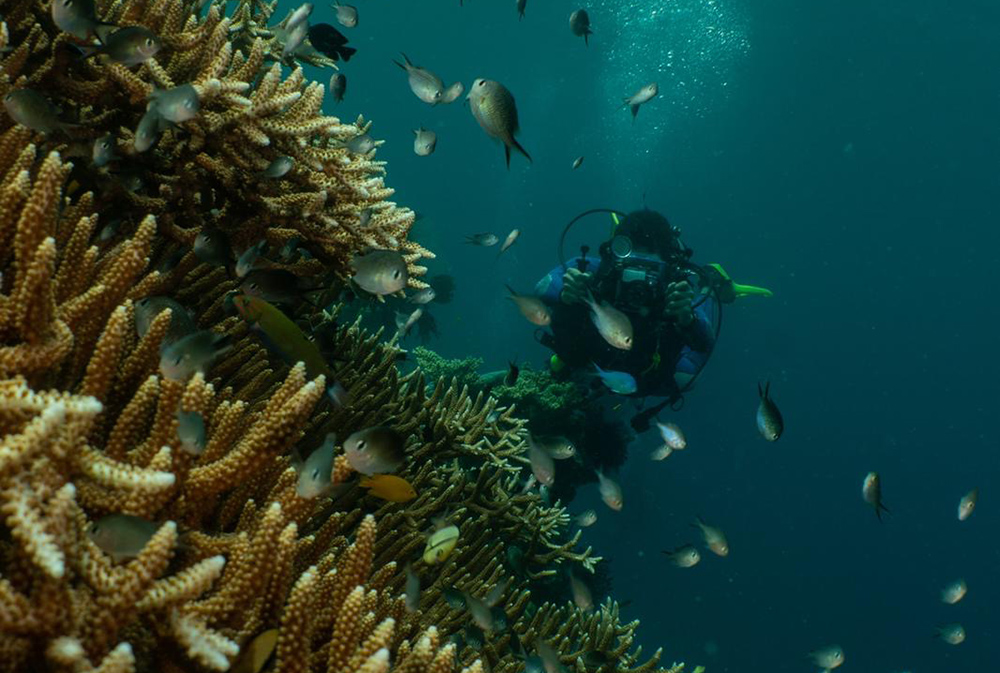Exclusive eco-tourism?
Today we arrived in Misool after sailing through the night. We woke up with a stunning sunrise, and a magnificent view on many green islands, randomly distributed in the ocean. In comparison with Dampier we see much fewer liveaboards and no homestays. However, we turn out to be anchored in front of a beautiful resort, which colors and materials blend in with the landscape. Our expedition leader quickly tells the captain that the view on our tourist boat will probably not be appreciated by the visitors of the resort, so we sail to a location just out of sight.
When we arrive on shore we are welcomed by the owners of the resort. It is a highly exclusive eco-resort. Already from the first sight, it is clear that the owners are very dedicated to minimize the impact on the ecosystem. I’m impressed. Next to each hut is a little garden of five by five meters with green plants. These are wastewater gardens that are supposed to take up the nutrients of toilet-visits, preventing pollution of the home reef. There are solar panels, and solar boilers, that provide the resort with electricity and hot water.

The bay in front of the reef is full of sea turtles that don’t seem to mind our presence.
The care for the reefs stretches out towards the sea around the islands: there is a well-functioning regime to regulate the number of liveaboards and divers on popular dive sites.
Sharks swim around quietly again
The owners know very well how unique these reefs are. So they do everything to share their sustainable vision on tourism in Raja Ampat with local and regional policy makers. Not even twenty years ago shark finning and blast-fishing (fishing with dynamite) were common practice in this area. At this moment, the black-tip reef sharks are swimming quietly close to the jetty. And the bay in front of the reef is full of sea turtles that don’t seem to mind our presence. While snorkeling a bit further from the resort I notice the high coral cover, very few algae, and the presence of many fish.

Regulating tourism
After our visit, I keep thinking about how this success relates to the rest of Raja Ampat. Only exclusive eco-resorts seem no option. For the majority of tourists this area will be completely out of reach. Is this bad? Does everybody have the ‘right’ to be here or not? I discuss with the social scientists on our trip if there are other possibilities besides raising prices to regulate the flow of tourists. I could think about a lottery or a waiting list. However, Indonesia wants to have a fast-growing economy, and one of the focus points nowadays is tourism in Raja Ampat.
The owners of the resort suggested to define different zone, ranging from completely closed areas to regulated areas to freely accessible areas. I also think about ways to apply the local regulation system, Sasi, to tourism. With Sasi some months of the year tourists are allowed in the area, and after that the system gets some time to recover. All our great top-down ideas to lower the pressure on the system seem quite simple. But what about the local and political stakes, and involvement?
Social challenge
In my opinion, the real challenge of this expedition is not ecological, but social. What excites the local people? How can be prevented that people from out of the region will be ruling everything? Who has the power and willingness to change, and what do these people want to achieve? Can we learn from other areas where changes were occurring at a similar high rate?
The discussions about such questions with our expedition members and locals – and the fact that we are completely closed off from the outer world, because we have no phone connection or internet – keep me pondering…

